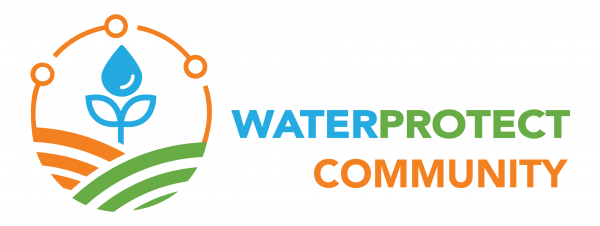The integrated policy support activities of the Water Protect project are contributing to the European dialogue on the role, scope and synergies between agriculture and water policies. The implementation of these policies and the effectiveness in producing real results is very much influenced by implementation mechanisms at local level. On April 2nd 2020, WaterProtect organized a policy conference “Sustainable drinking water management & farming – successful local policies, initiatives and partnerships” to identify examples of local policies, initiatives and partnerships making a positive contribution to the drinking water management involving farming systems.
Online meeting
Due to the COVID-19 health crisis in Europe, this conference was transformed in an online meeting. The event had a great success in the water & agriculture community, with more than 150 participants that registered and attended various parts of the conference.
The results of this conference, integrated with the results of the two other WaterProtect conferences already organised in December 2018- on synergies between EU agriculture and water policies- and September 2019 -on elements for a long-term strategy for water&agriculture - will be integrated in a set of EU and national policy recommendations for drinking water management involving farming systems and land management.
Our objectives were to identify and share with participants examples of local policies, initiatives and partnerships making a positive contribution to the drinking water management involving farming systems. Through this we were aiming at encouraging the dialogue and networking between local authorities and stakeholder from various ActionLabs to discuss the factors that contribute to the success of these initiatives, platforms or policies.
4 areas of interest
The agenda has been structured to cover four major areas of interest, each including relevant examples that contribute to water management with the involvement of agricultural systems:
• Legal and policy initiatives towards better integration of activities within the catchment management
• Initiatives driven by industry to establish partnerships between water managers and farmers
• Initiatives promoted by NGOs to stimulate cooperation between water management structures and farming
• Initiatives promoted by farmers toward better protection of water environment
This resulted in a nice and diverse presentation program that can be downloaded below:
WaterProtect introduction by Ingeborg Joris, project coordinator (VITO)
Alexandra Puscas about WaterProtect's Romanian Action lab (ECOLOGIC)
Rhune Van Cleemput (De Watergroep) about the Belgian Action lab
Patrick Verstegen (VLM) on the Flemish Water-Land-Schap land development programme
Erik Mellander (Teagasc) about WaterProtect's Irish Action lab
Weronika Kosin (WWF Poland) about initiatives against nutrient polution in the Baltic sea area
Pat Murphy (Teagasc) on farmers cooperatives and sustainable water management
We were able to identify positive examples of formal and legal solutions at the local level, initiatives and partnerships that contribute to the sustainable management of drinking water resources, taking into account the needs of farmers, but also indicating the need to introduce changes in agriculture that are necessary to maintain or improve quality drinking water. The new EU legal framework presented by the European Commission which promotes the risk-based approach in water management has been an area of interest for all.
Additionally, lessons were drawn from relevant regional or local policies or programs that successfully promoted best practices in water and farming.
Initiatives from the industry, NGOs and farming communities
Equally important, we saw during the conference that industry initiatives can have a huge impact in developing the right approach in reducing point source and diffuse pollution, in establishing partnerships and long-terms collaborations between farmers and water companies for the mutual benefit.
NGOs, regardless if their main objective is to preserve biodiversity or for example to promote eco-tourism, acting locally or regionally, can have a huge impact in raising awareness, but beyond that they concretely contribute to establishing programs and activities to establish local strategies or to encourage implementation of best management practices.
Farming communities are surely best placed to address challenges of water pollution. Research on implementation of best practices, sustainability assessment or peer learning are all examples of enabling activities that bring closer stakeholders of water management.
Creation of WaterProtect Community
As a response to the needs for cooperation in developing solutions for collaborative approaches for water and farming the WaterProtect project launched the pan-European WaterProtect Community.
The purpose of this initiative is the development and animation of an active community of stakeholders and experts in addressing water management& agriculture challenges.
The scope of collaboration in the WaterProtect Community is structured on three areas of interest:
- Policy implementation in the EU and national context
- Governance best practices
- Developing new solutions and upscaling
The WaterProtect Community of expertise can be a fertile ground for establishing collaborations and partnerships for the development of new solutions to protect water resources and to reduce impact from agricultural activities. We will be able to connect key experts and stakeholders interested to design and further develop policy approaches that include water governance models with the involvement of agricultural systems. Acting together will stimulate interaction and to engagement and create the background for future partnerships and collaborations in the area of water&agriculture.

